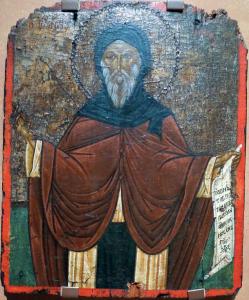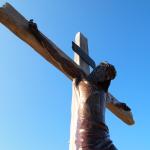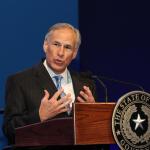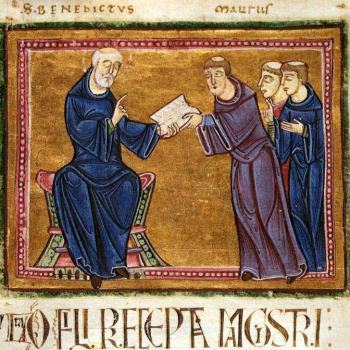
When many churches were being administered by Arians, often put in power by civil authorities, we find various people fleeing from the cities in which they were found. They formed their own, often separate (but not completely independent) religious communities, many of which became monastic communities. They helped preserve and protect the faith, giving a place of refugee to those who were fleeing from Arian authorities, such as St. Athanasius. St. Antony welcomed Athanasius, and indeed, became as it were, a spiritual advisor to him, so that when Antony died, he gave his tunic to Athanasius as a sign of his continued protection and to indicate to the other monks they should listen to and heed him.
After Antony had died, the Arian controversy continued to cause problems in the church, and so those who came after Antony were encouraged to follow his example and help provide a place for those who needed a place of refuge from what was happening in various churches. Thus, in a letter to one of St. Antony’s disciples, St. Serapion of Thmuis said:
For the sanctuary of God does not have its ministry, and the churches of God are despoiled by many people. And now the places are left deserted because the people do not enter, and they make for themselves desert places as congregations in place of the holy Church. Their grief is cured by changing places, and they dwell in the wilderness and from there offer their prayers to God.[1]
Many, but certainly not all, of the desert fathers and mothers entered the desert to find a place in which they could practice their faith without having to deal with the conflicts which were happening in the cities (like Alexandria). Some of those conflicts were theological, but others were secular. Once Christianity had become accepted by secular society, there was a fear that Christianity was being transformed, being forced to accept aspects of secular society which weakened its spiritual message. This is not to say all such changes were seen as bad; indeed, they could not be as it was believed that God had helped Christianity emerge from its status as a criminal faith to one which was given the right to exist, and soon after that, preferential status by the state. Christians had to come to terms with and accept the kind of changes that came about as their new status; some accepted that change and embraced it, while others, while not rejecting the validity of such change and indeed saw much of it was inevitable and perhaps useful for the ordinary person of civil society, still wanted more, and so took on asceticism to embrace a spiritual rigor that they believed would not only help themselves, but others around them as their life of prayer could and would be put to use for the good of all.
The monastic movement did not start in the post-Constantinian world. St. Paul the Hermit, St. Antony the Great, and others, made their way into the desert before Constantine gained power, but they set up the situation and spiritual environment which would take in those who felt the needed to flee from the world, be it because they found churches becoming too lax, or because they needed a place of refuge. It is important for us to remember that many monks and nuns did not start out as holy men and women, but many of them were from the outskirts of society, engaged disreputable occupations, such as being thieves or prostitutes, but, due to some encounter with God in their lives, their lives changed and they took on the ascetic vocation to continue that change and further develop their new relationship with God.
St. Antony consistently showed, with his own actions, how the monastic community must keep hospitality central to its mission. Many were first welcomed into the monastery, when others would not receive them, and now they, having gained the benefit of such a reception, should show hospitality to others. While several monks took up his example and did as Antony hoped, sadly, we know, not all did, as there are examples of monks being turned into unruly mobs who caused more harm than good. St. Antony would not have accepted such acts of violence, as he thought the way to confront Arians and others like them was to engage them with charity, to speaks boldly, as he did in Alexandria, but not engage violence, even if it meant one risked being killed because they were unwilling to take up arms to defend themselves.
Serapion, writing after the death of Antony, wanted Antony’s disciples to know that the charism Antony has been given could and should continue in and with them. They should follow his example. They should become like him:
I therefore pray that while you are many and have great power among you – because each of you was an Antony and because you labor greatly and are indeed many – the power of many Antonys may come down to use, powers which by effecting a greater reformation than before will themselves be made more perfect than before.[2]
St. Antony, served as a mediator of grace to the world in and with his prayer. Antony had confronted and subdued many of the evil powers which threatened himself and society. He had received grace and used it, not just for himself, but for all. Serapion believed that it was the mediatory work of those like Antony who made sure that the sins of the people of the world were unable to achieve their proper and final end, that is, the destruction of the world. Thus, to become like Antony, Serapion wanted others to become mediators to the world, engaging a life of prayer in order to bring healing grace to the world:
Because he appeased God by his holy prayers, we who are many shall do the same thing by good deeds; and you will appears God by the holiness of your souls. And I think that the whole of wrath may chance to depart from us, for the Church will surely receive some quiet relaxation.[3]
In this way, Serapion provides us a foundation by which we can best honor Antony. That is, we should feel encouraged to follow him in his spirit, to embrace the way of holiness and prayer, not just for ourselves, but for the sake of the world. We should remember, in every century, there is strife in the church, and sometimes, that means, Christians will have to find places of refuge where they can and shall offer their prayers to God. They should not be discouraged if that is their calling. But they should realize that in doing so, they should continue their own spiritual development, realizing that it is connected with what happens not only with other Christians, but everyone else in the world. Then, their lives, their vocation, can be lived well, following its proper mission, a mission of mercy and grace, of prayer and devotion, all seeking to help bring to the world the changes it needs.
[1] Serapion of Thmuis, “Letter to the Disciples of Antony,” in Athanasius of Alexandria: The Life of Antony. The Coptic Life and the Greek Life. Trans. Tim Vivian and Apostolos N. Athanassakis (Kalamazoo, MI: Cistercian Publications, 2003), 46-7 (#20).
[2] Serapion of Thmuis, “Letter to the Disciples of Antony,” 45 (#17).
[3] Serapion of Thmuis, “Letter to the Disciples of Antony,” 46 (#18).
Stay in touch! Like A Little Bit of Nothing on Facebook.
If you liked what you read, please consider sharing it with your friends and family!
N.B.: While I read comments to moderate them, I rarely respond to them. If I don’t respond to your comment directly, don’t assume I am unthankful for it. I appreciate it. But I want readers to feel free to ask questions, and hopefully, dialogue with each other. I have shared what I wanted to say, though some responses will get a brief reply by me, or, if I find it interesting and something I can engage fully, as the foundation for another post. I have had many posts inspired or improved upon thanks to my readers.













